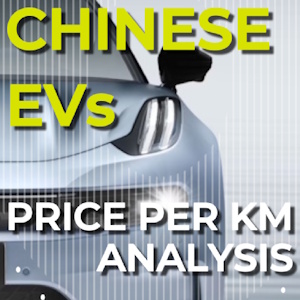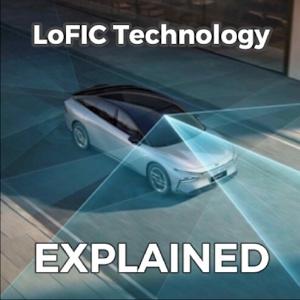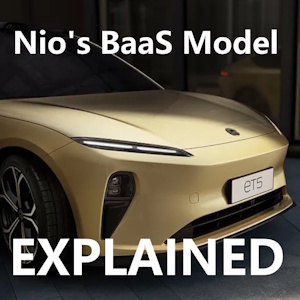Volkswagen is taking a major step in its EV strategy by licensing Xpeng’s autonomous driving solution, XNGP, for its electric vehicles in China starting in 2026. The first model to feature this technology will be a mid-size SUV co-developed with Xpeng, built on the China Electronic Architecture (CEA) platform. By adopting XNGP, Volkswagen aims to accelerate the development of intelligent EVs for the Chinese market without relying solely on internal software teams.
…And when it comes to EVs, once something happens in China, it usually spills over to Europe.
Table of Contents
- CARIAD, Volkswagen’s Troubled Software Subsidiary
- Cariad Restructuring Signals Shift in Strategy
- Implications for Volkswagen’s Future
- European Market Considerations
- FAQ
CARIAD, Volkswagen’s Troubled Software Subsidiary
CARIAD is Volkswagen’s in-house software division, established to develop proprietary systems for electric and autonomous vehicles, including operating systems, connected services, and advanced driver-assistance technologies. Initially, CARIAD was intended to give Volkswagen full control over the software that increasingly defines vehicle performance and user experience. However, the division faced persistent delays, rising costs, and difficulties delivering reliable, scalable solutions.

If one asks what went wrong, much of it comes down to decisions made by upper management; the software engineers were primarily developing what they were instructed to build, rather than shaping the strategy themselves.
>Related: Xpeng EVs Available in Europe
These challenges led Volkswagen to pivot, opting to license proven solutions from partners like Xpeng and Rivian, allowing the company to accelerate development and reduce risk while still bringing advanced technology to its vehicles.
Cariad Restructuring Signals Shift in Strategy
With this pivot, Volkswagen is largely discontinuing its in-house software development efforts and focusing on integrating technologies from external partners. This reflects a broader trend in the automotive industry, where traditional manufacturers increasingly rely on specialized tech companies for advanced software capabilities. By outsourcing key software components, Volkswagen hopes to speed up development and bring sophisticated features to market more efficiently.
Implications for Volkswagen’s Future
While licensing external software may help Volkswagen reduce development timelines and access cutting-edge technology, it also signifies a major departure from its prior ambition to develop proprietary software. Essentially, Volkswagen is outsourcing one of the most critical assets for future vehicles: the software. Over time, this could erode its competitive edge, especially as software becomes central to vehicle differentiation, even though the company remains a dominant player in Europe and globally.

European Market Considerations
In Europe, Volkswagen’s scale and brand recognition remain strong, so this move is unlikely to immediately impact sales or market share. However, long-term dominance may be challenged if competitors continue to innovate internally in software-driven systems, particularly in autonomous driving, connected services, and vehicle intelligence. Relying on external software could also affect Volkswagen’s agility in responding to market changes and regulatory requirements.
FAQ
Q: Which Volkswagen vehicles will use Xpeng’s XNGP technology?
A: The first model will be a mid-size SUV built for the Chinese market, starting in 2026, with more models expected in subsequent years.
Q: What happened with Volkswagen’s CARIAD division?
A: CARIAD struggled with delays, high costs, and challenges in delivering reliable software. Upper management largely dictated its priorities, while engineers developed what they were instructed to build. Volkswagen now licenses software from partners like Xpeng and Rivian to accelerate development.
Q: Does this mean Volkswagen will lose its competitive edge?
A: While Volkswagen remains strong, outsourcing software could gradually reduce its ability to differentiate vehicles and innovate internally, potentially affecting long-term dominance.
Q: Will this strategy impact Volkswagen’s operations in Europe?
A: Not immediately. Volkswagen’s scale and brand strength in Europe remain solid, but long-term agility and innovation could be influenced by reliance on external software providers.
Q: Why is Volkswagen licensing software instead of developing it internally?
A: Licensing allows the company to accelerate development, reduce costs, and leverage existing expertise in autonomous driving, addressing challenges that slowed in-house software progress.
Featured Image Source: Volkswagen










